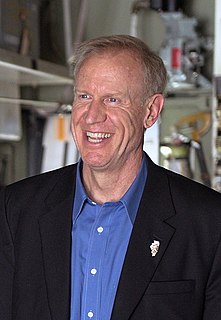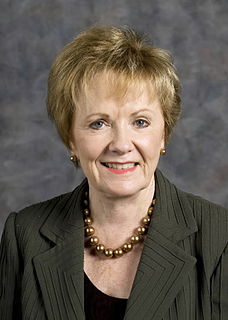A Quote by Julia Child
In my generation, except for a few people who'd gone into banking or nursing or something like that, middle-class women didn't have careers. You were to marry and have children and be a nice mother. You didn't go out and do anything. I found that I got restless.
Related Quotes
This will sound like I grew up on another planet, except for those people who are past 55, 60 maybe. When I was growing up, my mother and her generation basically felt that you should only work as a way of passing time until you got married and had at least two children. And the only careers that were open for women at the time was teacher or nurse - which are fantastic careers, I mean fantastic and I actually am a former math teacher.
By default, we have created a "system" of nursing-home care for the aged in which middle-class people pay exorbitant rates to for-profit nursing-home entrepreneurs - and then when private resources are consumed and the patient qualifies as a pauper, the nursing home begins billing Medicaid. This is precisely the antithesis of social citizenship; instead of the poor being accorded the dignity associated with the middle class, equality of treatment is achieved by making the middle class undergo pauperization.
When I was growing up, you were supposed to marry and therefore didn't plan ahead. Planning ahead is one of the few reliable measures of class in the sense that rich people plan for generations forward and poor people plan for Saturday night, and by that measure, women have been lower class. We were less likely to plan ahead because we're more likely to think that who we marry and our children are going to dictate our plans.
The government decides to try to increase the middle class by subsidizing things that middle class people have: If middle-class people go to college and own homes, then surely if more people go to college and own homes, we’ll have more middle-class people. But homeownership and college aren’t causes of middle-class status, they’re markers for possessing the kinds of traits — self-discipline, the ability to defer gratification, etc. — that let you enter, and stay, in the middle class. Subsidizing the markers doesn’t produce the traits; if anything, it undermines them.
Late one afternoon when returning from town we were met by a few women and children who told us that Mexican troops from some other town had attacked our camp, killed all the warriors of the guard, captured all our ponies, secured our arms, destroyed our supplies, and killed many of our women and children.. when all were counted, I found that my aged mother, my young wife, and my three small children were among the slain.
In the middle of my second year at school, in 1943, I got drafted into the army, was gone for three years, and when I came back, I tried to get into the painting classes which I wanted, but because of all the returned GIs [the GI Bill], everyone was in school and the classes were all full. So I looked at the catalogue and found that there was a ceramic class offered and that there was space in that. I registered for a ceramic class and some drawing classes.
Like so many first generation children of Indian immigrants, I learned to believe in a dream that is as much American as it is universal: a dream of equal opportunity for all based on merit, of power concentrated not in the hands of a few at the top, but fanning across a large, educated, and civically engaged middle class.








































